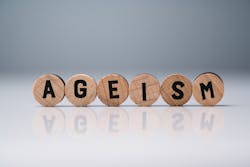On Feb. 9, the World Health Organization (WHO) announced a new policy brief entitled, “Ageism in artificial intelligence for health.” The brief discusses legal, non-legal, and technical measures that can be used to minimize the risk of worsening or creating ageism through artificial intelligence (AI) technologies.
The press release on the policy brief states that “AI technologies are revolutionizing many fields including public health and medicine for older people where they can help predict health risks and events, enable drug development, support the personalization of care management, and much more.”
The release adds that there are concerns that AI, if left unmonitored, could further ageism and challenge the quality of healthcare that older individuals receive. Older individuals are often underrepresented in AI data and there are flawed assumptions surrounding how older people live or interact with technology.
That said, “The following eight considerations could ensure that AI technologies for health address ageism and that older people are fully involved in the processes, systems, technologies and services that affect them.
- Participatory design of AI technologies by and with older people
- Age-diverse data science teams
- Age-inclusive data collection
- Investments in digital infrastructure and digital literacy for older people and their health-care providers and caregivers
- Rights of older people to consent and contest
- Governance frameworks and regulations to empower and work with older people
- Increased research to understand new uses of AI and how to avoid bias
- Robust ethics processes in the development and application of AI”
Alana Officer, unit head, demographic change and healthy ageing for WHO was quoted in the release saying that “The implicit and explicit biases of society, including around age, are often replicated in AI technologies. To ensure that AI technologies play a beneficial role, ageism must be identified and eliminated from their design, development, use and evaluation. This new policy brief shows how.”
The release concludes that the policy brief aligns with the “Global report on ageism” that was produced by WHO in collaboration with Office of the United Nations High Commissioner for Human Rights, United Nations Department of Economic and Social Affairs, and United Nations Population Fund. The report launched in March 2021.


